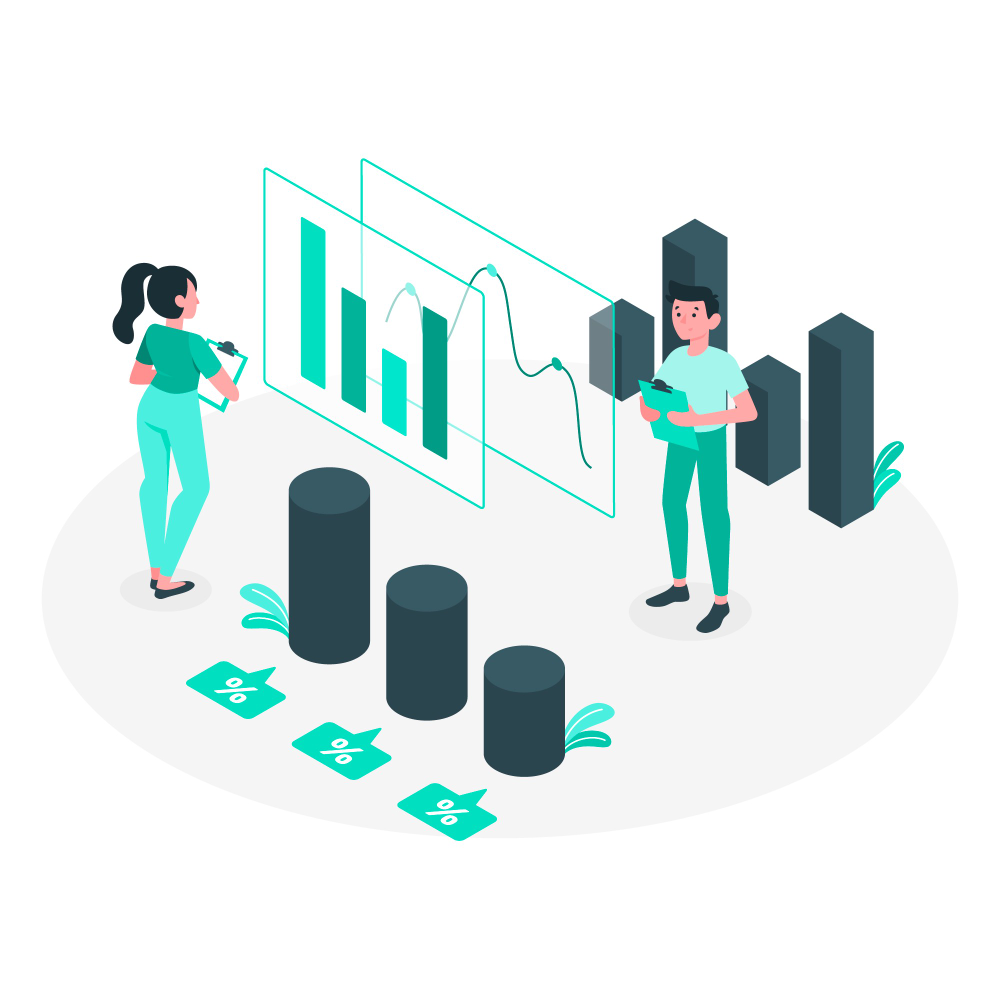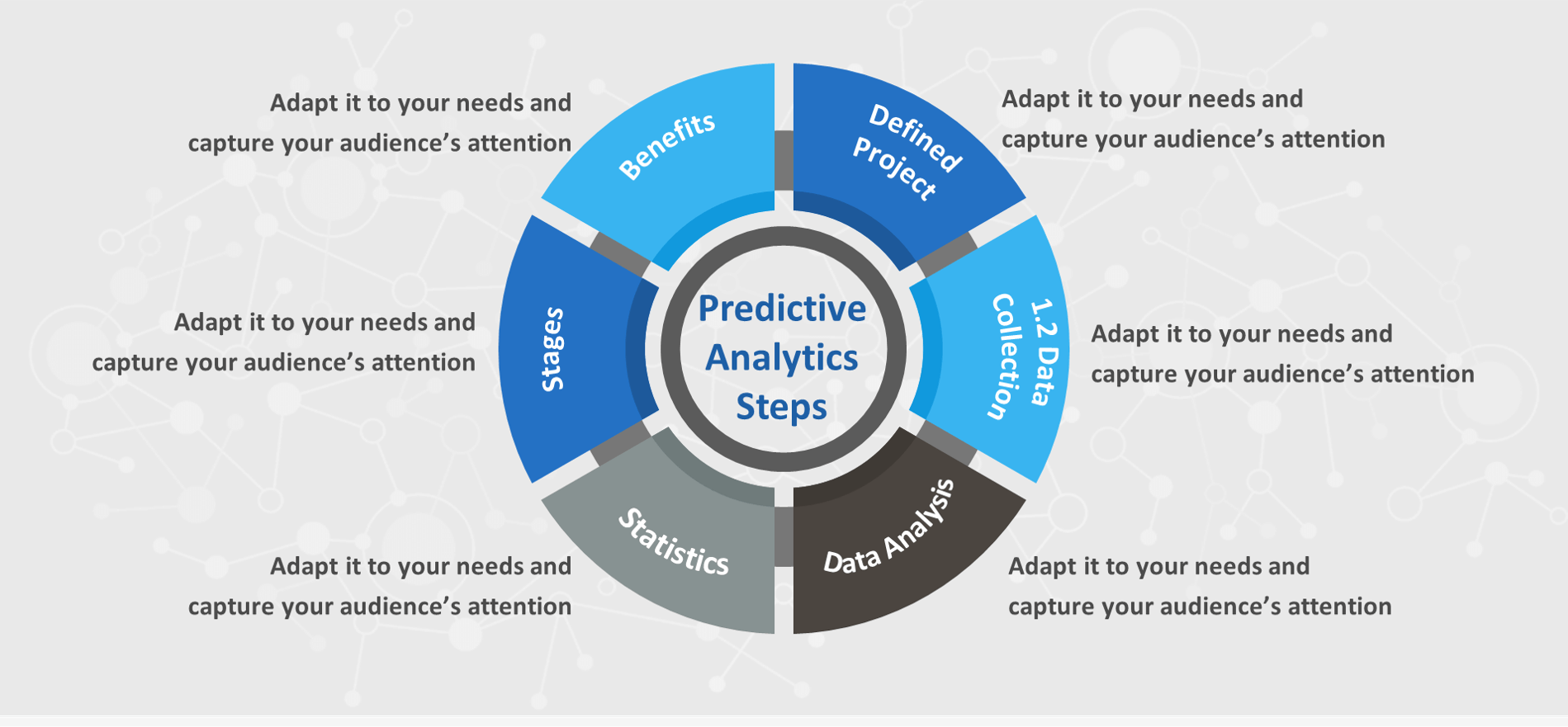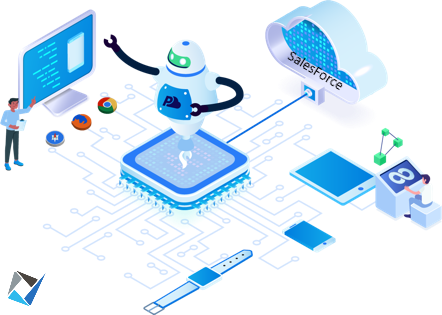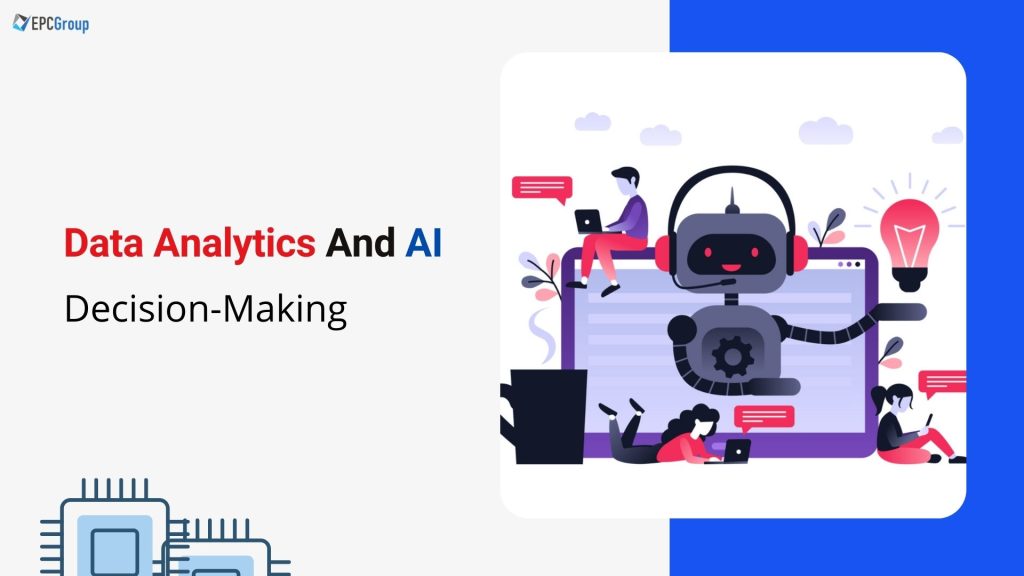When strategic decisions need to be made, there are times when more data is required to determine the best course of action, and decisions based on intuition are often not reliable. Analytics and Artificial Intelligence help us by providing us with the tools needed to make decisions more reliably and accurately. How do they help in decision-making?
Impact of Data Analytics and Artificial Intelligence in decision making process
Analytics and Decision-Making
Analytics are the tools that help you make decisions. How do they help in decision-making?

With the help of analytics, we can understand the features and behavior of our customers, what products they’re buying, etc. In retail, analytics can help develop a better strategy to direct our traffic to the best items. The same concept is used in other industries as well. For example, some people would argue that synthetic biology can be used to develop organisms that are more efficient in the production of ethanol, which is a component of biofuels.
Analytics is a vital ingredient in decision-making, but they are like data without a recipe without proactive action. By analyzing data and provide business intelligence reports, you can find patterns in your business and use these to improve your products and services. You can find new opportunities for growth and profitability, gain new insights into your customers, and make strategic decisions to serve them better. Analytics are becoming increasingly common in smart decision-making using predictive analytics consulting, whether it’s for a sports club or a company. Analytics allows for a much better understanding of a company’s business and how decisions can be made to maximize profits.
Artificial Intelligence and Decision-Making
Artificial intelligence (AI) has been used since the 1950s to solve some of the biggest challenges in business today. From automating tasks to making medical diagnoses, AI is making a huge impact on our daily lives. One use of AI is in predictive modeling: the application of big data to anticipate future events. As a result, it is making a splash in the business world.
The term AI is frequently used to describe technologies that are used for automating decisions. According to psychology professor Dan Schacter, human beings are blind to the sheer number of decisions they make each day. Examples of these decisions include knowing it’s time to check the mail, waking up early, and eating ice cream. But these decisions are not merely idle actions—they also impact our health, our mood, our relationships, and our careers.
Artificial intelligence applications are now so numerous that it is hard to keep track of them all. From Google Search to Google Maps, Alexa to Amazon Echo, chatbots to robots, virtual assistants to personal assistants, weather apps to social networks, there’s no shortage of AI applications out there. However, deciding whether an AI application is worth using can be difficult. This is because there are too many variables to consider, and the quality of machine learning is very subjective.
What is Predictive Analytics?

Predictive analytics is an interdisciplinary field that combines the use of data and statistics to predict future events, such as sales, yields, needs, or fuel consumption. It is often used by organizations to help with decision-making. For instance, a supermarket may want to know how many detergent bottles it will need to keep supplies stock in the coming weeks. This can be used to plan production or inventory.
Predictive analytics has been around for a few decades. Although, it is now being applied to a wide range of decision-making domains, including financial, medical, marketing, transportation, industrial, etc. One recent major application is machine learning. Machine learning models are trained on large data sets to produce predictive models that can then be used to identify patterns and trends in historical and current data.
Analytics in Business
Businesses and organizations use analytics to understand the marketplace and the competition better. Consequently make better decisions—for example, micro-marketing and retail analytics using Power BI arm sales and marketing efforts. Analytics also influence the call to action. In a fully digital world, analytics also influences the delivery of digital experiences. For example, a user might be directed to a page to sign up for a show or otherwise prompted to complete a task. Finally, analytics in the digital age has evolved into AI or artificial intelligence. Organizations are rapidly moving towards digital transformation in their organization.
In traditional business, decisions are made based on data analysis. Whether the data is historical, contemporary, or future, it is analyzed to determine how an action can be based on the current (or past) situation. By applying the right models to the data, the predicted effect of the action can also be determined. The technology behind analytics and AI is being applied in many industries, and the benefits are quite apparent in terms of decision-making.

How are these important?
Analytics and AI are improving the way we work, live, and play. With the help of these changes, businesses can make more informed decisions, and businesses of the future will be able to take advantage of the huge amounts of data they can collect.
Should We 100% Rely on AI and Analytics When It Comes to Decision-Making?
One of the most common buzzwords heard in the world of analytics these days is AI. And yet, what exactly does it mean? To be sure, some fairly simple algorithms can be used to predict the probability of certain events, such as the likelihood of a customer buying a particular product.
Take Amazon, for example, and the e-commerce giant uses algorithms to predict the right products to recommend to customers. There is still a lot of debate about the ethics of applying AI to workplace analytics, but how will it affect you? When we have to rely on these tools to make decisions, it may be time to rethink our careers.
Such basic analytics are currently being used primarily in marketing to predict which products will sell better and more effectively. But the term AI is getting a lot more attention now as it is used to refer to more complex algorithms, such as automated sentiment analysis that can analyze a large collection of text messages or posts and determine whether they are positive or negative.
Making Decisions
There is a lot of hype surrounding analytics and AI lately. The modern technology of predictive analytics and machine learning has taken the world by storm. It is being used in a variety of applications, including optimizing product design, increasing employee productivity, predicting the future, and more. With all this hype, the question that comes to mind is: Are analytics and AI really being used to help improve our decision-making?
Modern analytics tools help businesses make better decisions. Things like predictive analytics can help a company with in-store sales forecasting. They also provide insights to figure out where to focus their efforts to optimize their business. If your job involves making a lot of decisions, you will certainly need to use analytics tools to be successful. Analytics is the tool that helps you make better decisions.
Before we can make decisions, we need to understand the basic concepts of analytics and artificial intelligence. Both analytics and AI allow us to make decisions based on patterns by predicting behavior and allowing us to gain insights into the past, present, and future. Both of these have revolutionized the way we make decisions, but often, we still use our gut rather than numbers and algorithms when it comes to the most important choices in life. So, how can you trust your instincts when making important choices?
Fill In The Below Form For – FREE 30 Mins Data Analytics Consulting










